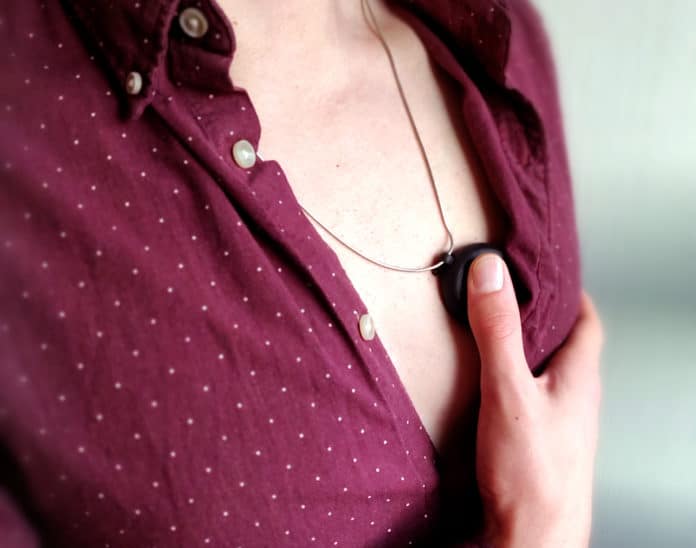Atrial fibrillation, a quivering or irregular heartbeat, is considered one of the main causes of strokes. Often it has no symptoms, so it goes unnoticed. Currently, most electronics giants are trying to provide an ECG from the wrist level, i.e., in a smartwatch. This is a natural development for the tracker, which already has many other sensors, a screen, and the ability to install applications or update the system that implements new functions.
A team from the University of Eastern Finland is developing a new experimental gadget with an alternative format. It is in the form of a necklace. The readings from the wearable necklace with a hidden ECG sensor are supposed to offer equally quick and easy access without the need to clamp the device on the hand. The idea of the necklace-ECG was probably to provide research at your fingertips.
The wearable necklace, in combination with the application for mobile devices, allows you to regularly monitor the heart’s activity through electrocardiography (ECG). To check the heart rate, just run the application on your smartphone and hold the pendant between the palms of their hands or between the palm and the chest for 30 seconds.
ECG data will be sent to a cloud-based server, where artificial intelligence algorithms perform its analysis. If atrial fibrillation is detected, the patient and his doctor will be notified of this within a few seconds.
The technology was tested by 140 adult volunteers. They measured their heart rate with a necklace and simultaneously passed the traditional test on a three-wire electrocardiograph. When it comes to detecting atrial fibrillation, both methods were highly effective. The only difference is that the necklace-ECG test has the ability to conduct it anywhere and anytime.
The necklace seems to be a convenient variation of the wearable electrocardiogram. The authors emphasize that it has been designed to be comfortable to wear and was available almost on demand.
The project is to be offered to the elderly (65+) who are more at risk of having a heart attack because of their age. The regular examination could detect early warning signs and a much earlier response to the problem. In the near future, this type of device will help protect lives.
